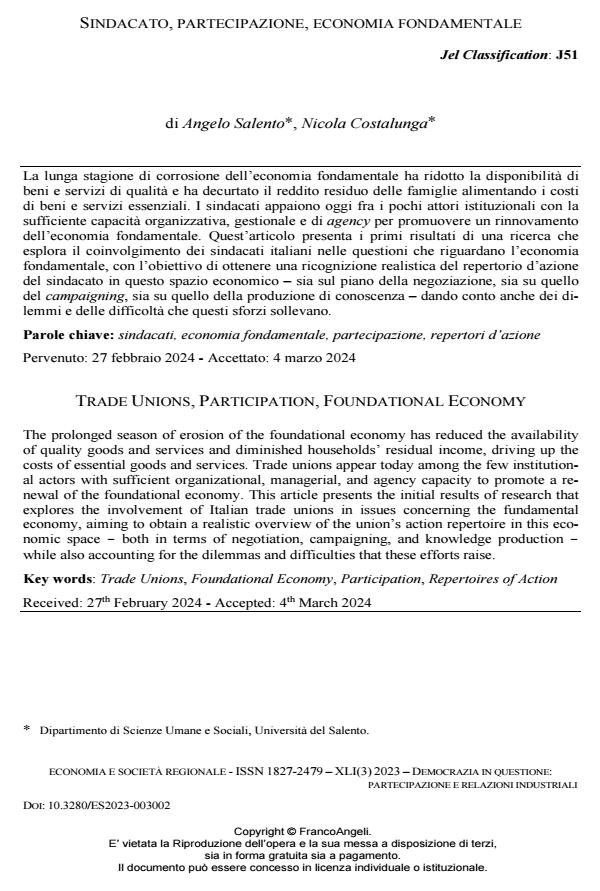Trade unions, participation, foundational economy
Journal title ECONOMIA E SOCIETÀ REGIONALE
Author/s Angelo Salento, Nicola Costalunga
Publishing Year 2024 Issue 2023/3
Language Italian Pages 19 P. 15-33 File size 226 KB
DOI 10.3280/ES2023-003002
DOI is like a bar code for intellectual property: to have more infomation
click here
Below, you can see the article first page
If you want to buy this article in PDF format, you can do it, following the instructions to buy download credits

FrancoAngeli is member of Publishers International Linking Association, Inc (PILA), a not-for-profit association which run the CrossRef service enabling links to and from online scholarly content.
The prolonged season of erosion of the foundational economy has reduced the availability of quality goods and services and diminished households’ residual income, driving up the costs of essential goods and services. Trade unions appear today among the few institution- al actors with sufficient organizational, managerial, and agency capacity to promote a re- newal of the foundational economy. This article presents the initial results of research that explores the involvement of Italian trade unions in issues concerning the fundamental economy, aiming to obtain a realistic overview of the union’s action repertoire in this eco- nomic space - both in terms of negotiation, campaigning, and knowledge production - while also accounting for the dilemmas and difficulties that these efforts raise.
Keywords: Trade Unions, Foundational Economy, Participation, Repertoires of Action
Jel codes: J51
Angelo Salento, Nicola Costalunga, Sindacato, partecipazione, economia fondamentale in "ECONOMIA E SOCIETÀ REGIONALE " 3/2023, pp 15-33, DOI: 10.3280/ES2023-003002